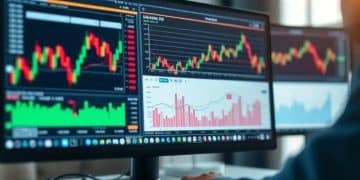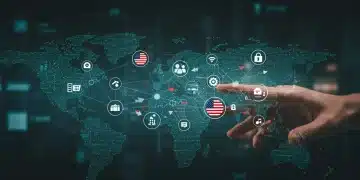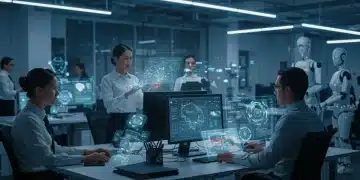Expert analysis on political changes: what to expect next

Expert analysis on political changes highlights how global events, economic factors, and social movements significantly shape local politics, requiring engaged citizens to adapt and respond actively.
Expert analysis on political changes can help us navigate the complex landscape of current events. With so many factors at play, how can we prepare for what’s next? Let’s explore the nuances and implications together.
Understanding recent political shifts
Understanding recent political shifts is essential for grasping the current landscape. As we analyze events worldwide, we see how they influence local and global systems. These changes often arise from a combination of public sentiment, economic factors, and international relations.
Key Factors Influencing Political Shifts
Several factors play significant roles in shaping political landscapes. Awareness of these elements can help individuals and organizations anticipate future changes.
- Public Opinion: The voice of the people often drives political agendas.
- Economic Conditions: Economic instability can lead to drastic political changes.
- Social Movements: Grassroots movements have historically impacted political policies.
- Global Events: Wars, pandemics, and treaties can influence national policies significantly.
The interplay between these factors creates a dynamic environment where political shifts can occur rapidly. For example, recent events such as protests have shifted public opinion, prompting new legislation. This adaptability is vital for leaders navigating today’s challenges.
Impact of Technology on Politics
Technology also significantly affects how political information is disseminated and consumed. Social media has become a double-edged sword, facilitating both democracy and misinformation. Engaging with technology can either bolster or undermine political credibility, depending on the context.
Moreover, data analytics allows parties to tailor messages to specific demographics, shaping political strategies. As the digital landscape evolves, understanding these nuances can help citizens make informed decisions.
In conclusion, understanding recent political shifts requires examining multiple factors, including public sentiment, technology, and economic conditions. By staying aware of these elements, we empower ourselves to navigate the complexities of modern governance and societal change.
Key factors driving political changes
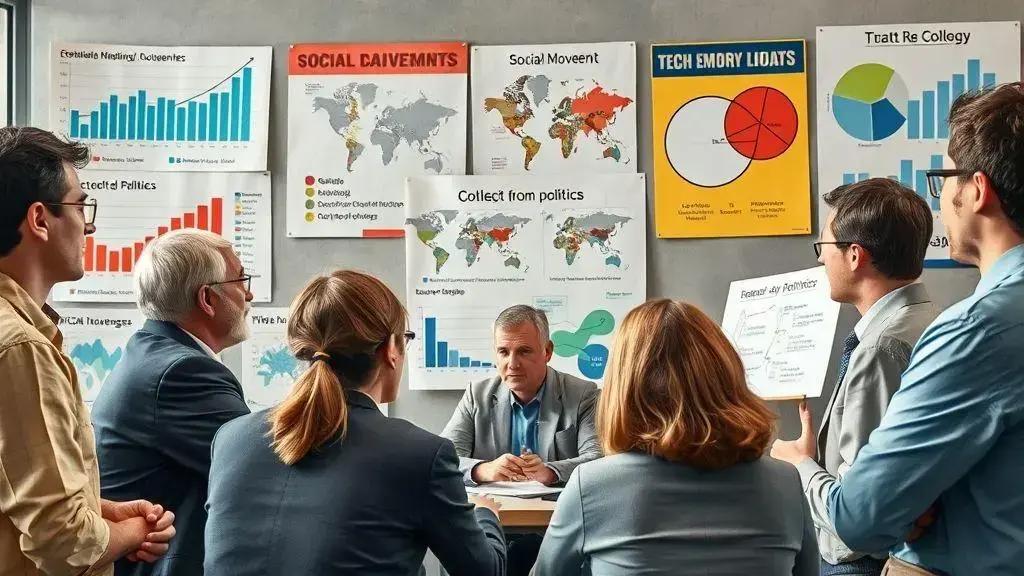
Key factors driving political changes shape the future of governance. Understanding these elements is crucial for citizens, policymakers, and analysts. Several intertwined dynamics facilitate shifts in political landscapes.
Economic Forces
The economy significantly influences political stability. When people face financial hardship, they often demand changes in leadership or policy. This connection between economic conditions and political climate is vital for understanding transitions.
- Unemployment Rates: High unemployment can fuel discontent and unrest.
- Inflation: Rising prices may cause public outcry for new policies.
- Income Inequality: Disparities can lead to social movements advocating for change.
- Trade Policies: Trade agreements can also alter political allegiances.
The relationship between economics and politics is complex yet essential for grasping shifts in power dynamics. As economic indicators fluctuate, so do public attitudes toward their leaders and institutions.
Social Movements and Activism
Social movements play a critical role in driving political change. Grassroots efforts can mobilize large groups of people, leading to significant policy shifts. Examples include civil rights movements and environmental activism, both demonstrating popular demand for change.
These movements often reflect broader societal issues, and they use various methods to gain visibility and influence. Organizing protests, using social media, and engaging in community outreach have become standard practices for advocates.
By connecting with diverse communities, activists can generate momentum for their causes. Their ability to rally support often leads to lasting political changes, showing the power of collective action.
The Role of Technology
Technology has transformed how people engage in politics. Social media platforms allow for rapid information dissemination, enabling ideas to reach vast audiences quickly. This connectivity can galvanize movements and create urgency around issues.
However, technology also poses challenges. Misinformation spreads swiftly, complicating public understanding. Being aware of how technology shapes narratives helps citizens navigate political landscapes more effectively.
As we consider these factors, we see how they intertwine to create a complex environment for political changes. By analyzing economic, social, and technological influences, individuals can better understand the shifting tides of governance and society.
Impact of global events on local politics
The impact of global events on local politics is profound and often immediate. When significant events occur worldwide, they can resonate in local communities, shaping political landscapes and influencing public opinion.
Examples of Global Events
Several recent global events have had notable effects on local politics. These events often serve as catalysts for change, prompting policy revisions and shifts in public attitudes.
- Economic Crises: Global financial downturns can lead to local unemployment and demands for political accountability.
- Climate Change: International climate accords pressure local governments to adopt greener policies.
- Public Health Emergencies: Pandemics can dramatically reshape healthcare policies at the local level.
- Geopolitical Conflicts: Wars or conflicts in one region can lead to immigration waves, influencing local politics and resource allocation.
Furthermore, the interconnectedness of our world means that local leaders must respond swiftly to these changes. Public sentiment often shifts in reaction to how well local politicians handle global issues. For instance, a natural disaster precipitated by climate change may lead to increased calls for sustainable practices in city planning.
Media Influence
The role of media cannot be underestimated in highlighting global events. 24-hour news cycles ensure that people stay informed, which in turn influences local political debates. Access to information can mobilize citizens to advocate for change, impacting local elections and governance.
Social media has further amplified this effect. Through platforms like Twitter and Facebook, people share opinions and rally support regarding global issues. Influencers often amplify local actions, making global events more relatable to individual communities. This dynamic creates a conduit through which local citizens can express their views on larger global concerns.
With these elements in play, it’s evident that the world is closely intertwined. The impact of global events on local politics serves as a reminder that no community exists in isolation. Individuals engaged in local politics must stay aware of global trends that can influence their decision-making processes.
Future predictions and public responses
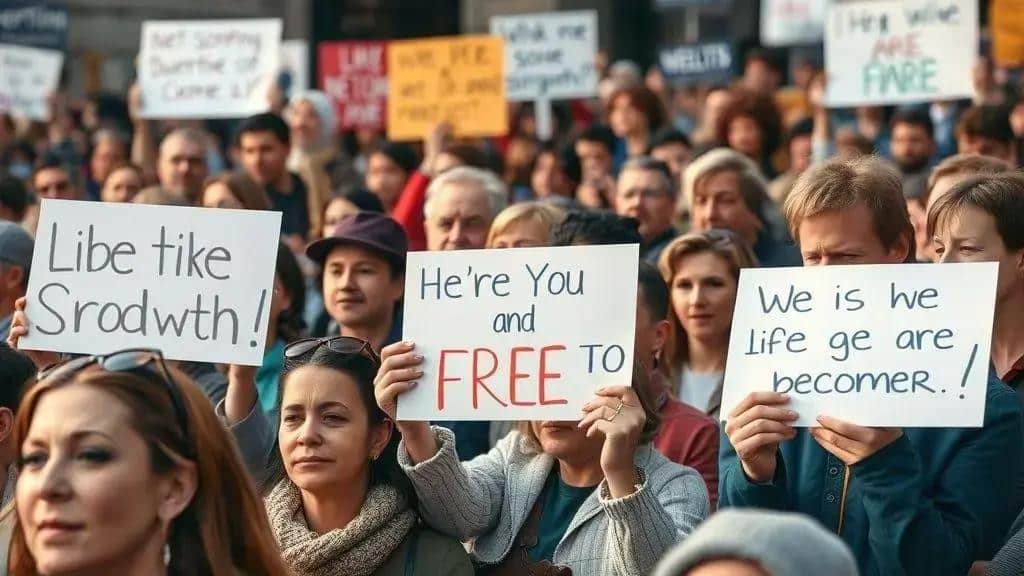
Future predictions and public responses will shape the political environment in the coming years. Understanding these predictions helps citizens prepare for changes that could impact their lives.
Emerging Trends
Several trends are predicted to influence political landscapes in the future. These trends will often respond to shifting public attitudes and global events.
- Increased Engagement: More citizens are likely to engage in politics through social media and local activism.
- Demand for Transparency: Public calls for transparency from leaders will continue to rise, pushing for accountability.
- Focus on Sustainability: Environmental issues are expected to remain at the forefront of public discourse, influencing policy decisions.
- Technological Influence: Technology will further impact how people communicate about political issues, shaping narratives.
As these trends evolve, leaders must remain responsive to the concerns of their constituents. Politicians can no longer ignore the power of informed citizens who demand change. Awareness of upcoming challenges will also be crucial.
Public Reactions
The public’s response to political changes can vary significantly based on context. Some individuals may express optimism, while others may be skeptical about new policies. These reactions often depend on how well leaders communicate their objectives and engage with communities.
Participation in elections will likely grow, as younger generations become more active in politics. This demographic shift will lead to a new wave of ideas and policies reflecting the values of a more diverse population. The voices of younger voters will have substantial influence on decision-making in both local and national arenas.
Moreover, public responses can also manifest through protests and social movements. As people rally around causes they believe in, we will see shifts in political power and policy changes. Understanding these dynamics will be vital for both leaders and citizens as they navigate the future together.
FAQ – Questions about Political Changes and Public Engagement
How do global events affect local politics?
Global events can significantly influence local policies and public opinion, prompting changes in leadership and governance.
What role does social media play in political engagement?
Social media facilitates rapid information sharing and civic participation, empowering citizens to voice their opinions and influence political discussions.
Why is public engagement important in politics?
Public engagement ensures that leaders are held accountable and policies reflect the needs and values of the community, fostering a more democratic society.
What trends should we watch for in the future of politics?
Key trends include increased citizen activism, demands for transparency, sustainability efforts, and the impact of technology on political communication.
